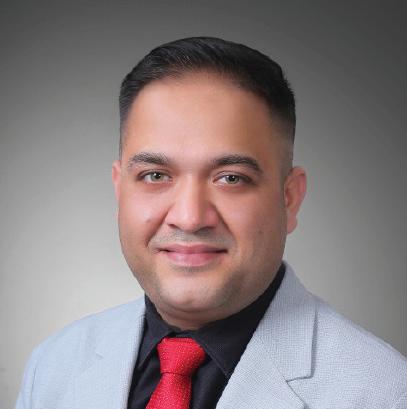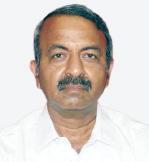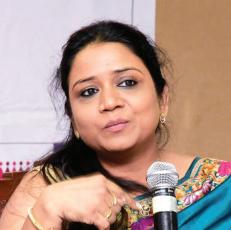









People often need more time to save for the future due to uncertainty and the personal goals they wish to achieve. The government introduced several appealing small savings schemes to encourage better saving habits and improve financial security. The Central Government manages these schemes, including the National Savings Certificate (NSC), Public Provident Fund (PPF), Senior Citizen Savings Scheme, Kisan Vikas Patra, etc.
These savings schemes offer higher interest rates and tax benefits to help individuals achieve long-term financial goals.
It came to the government's attention that many people have opened accounts violating the prescribed rules for small savings schemes. These accounts have been marked as 'irregular' by the government. To manage these accounts, the Ministry of Finance has issued the following guidelines through letters:
1) F. No. 14/1/2018-NS-Part(1), dated 12-07-2024
2) F. No. 14/1/2018-NS-Part(1), dated 30-09-2024
These guidelines provide norms to regularise the accounts opened under the National Savings Scheme, Public Provident Fund, and Sukanya Samriddhi Yojana.
This article discusses the irregularities in the following accounts and guidelines issued by the Government to regularise them.
The National Savings Scheme (NSS) was designed to encourage regular savings by offering secure investment options with tax benefits. It was discontinued and is no longer in operation.
The NSS was first introduced on 1st April, 1987. Under this scheme, individuals, Hindu Undivided Families (HUFs), Associations of Persons (AOPs) or Bodies of Individuals (BOIs) could deposit funds. Each depositor was allowed to open only one account, with a minimum deposit of Rs. 100 and a maximum annual contribution of Rs. 40,000.
However, the NSS 1987 was discontinued on 30th September, 1992, and a new National Savings Scheme was introduced on 1st October, 1992. Subsequently, this scheme was also discontinued on 1st November, 2002.
It was noticed that depositors had opened multiple accounts under this scheme to enjoy the benefit of higher interest rates, which was against the scheme’s rules. To resolve this irregularity, the following guidelines have been issued:
If the depositors opened two NSS accounts before 02-04-1990, the first account will earn interest at the prevailing scheme rate. The second account will earn interest at the prevailing Post Office Savings Account rate plus 200 basis points, i.e. 2% on the outstanding balance.
However, this is subject to the condition that the combined deposits across both accounts should not exceed the annual limit of Rs. 40,000. Any excess deposits in the accounts beyond this limit will be refunded without interest.
If the depositors opened two NSS accounts before 02-04-1990, the first account will earn interest at the prevailing scheme rate. The second account will earn interest at the prevailing Post Office Savings Account rate on the outstanding balance.
However, this is subject to the condition that the combined deposits across both accounts should not exceed the annual limit of Rs. 40,000. Any excess deposits in the accounts beyond this limit will be refunded without interest.
If a depositor has opened more than two NSS accounts, no interest will be paid on these additional accounts. The principal from these extra accounts will be refunded without any interest.
Although the NSS is discontinued, depositors are permitted to keep funds in the account until it is closed. However, these accounts will not earn any interest from 01-10-2024 onward.
The Sukanya Samriddhi Scheme is a government initiative designed to secure the future of a girl child by accumulating funds for her education and marriage. This scheme allows a guardian to open an account for a girl under 10 years of age. Each family can open accounts for a maximum of two girl children, with each account holder permitted to have only one account under the scheme. The Sukanya Samriddhi Scheme offers attractive interest rates and tax benefits, making it a compelling choice for parents looking to invest in their daughters’ long-term financial security.
Although the scheme does not explicitly define the term “guardian,” it follows the guidelines outlined in the Hindu Minority and Guardianship Act, 1956. Under this Act, a guardian can be the natural guardian (father or mother), a court-appointed guardian, or one designated by a will.
For unmarried girls, the father is considered the natural guardian, and the mother assumes this role after him. Stepfathers and stepmothers are not recognised as natural guardians under the Act.
It has been observed that some accounts under this scheme are opened by grandparents. The government has clarified that grandparents cannot open a Sukanya Samriddhi account for their granddaughter if her parents are alive. However, if the grandparent is the legal guardian of the girl, they are allowed to open an account.
If a grandparent who is not the legal guardian opens the account, the account’s guardianship will later be transferred to the parents or the legal guardian.
If more than two accounts are opened in a family, then the irregular account shall be closed by treating it as an account opened in contravention of the scheme.
However, in the following cases, the account can be opened with respect to more than two girl children provided an affidavit supported by the birth certificate of all the girl children is submitted by the guardian:
a) The first order of birth resulted in triplets, and all the children were girls; or
b) The second order of birth resulted in two girl children, and the first order also was the birth of a girl child. However, this exception shall be applicable if the first order of birth results in two or more surviving girl children.
The Public Provident Fund (PPF) is a tax-free investment avenue which is open to all individuals. The Government had brought the scheme to encourage the saving and investment habits among the individuals.
An individual can open only one account in his name under the PPF scheme. Additionally, an individual can also open one PPF account each in the name of a minor or a person of unsound mind of whom he is the guardian (legal or natural).
A minor with a guardian can continue holding or open a new PPF account and earn the prevailing PPF scheme interest rate, currently 7.1%.
If a minor’s account is opened without a guardian, it will be classified as an irregular account. Such an account will earn interest at the Post Office Savings Account rate until the minor turns 18, making them eligible to open an account. From that point on, interest will be paid at the applicable PPF rate, currently 7.1%.
Additionally, the maturity period for this account will be calculated from the date the minor reaches adulthood and becomes eligible to open the account.
If a person has more than one PPF account, only the primary account will earn interest at the rate set by the scheme as long as the deposits stay within the annual limit. The primary account is the one selected by the investor at any Post Office or Agency Bank where they want to keep the account active.
The balance of the second account will be combined with the primary account, as long as the primary account stays within the investment limit each year. After the merger, the primary account will continue to earn interest at the current rate. Any amount over the limit in the second account will be refunded without interest.
Additional accounts beyond the primary and second accounts will earn 0% interest from the date they are opened.
For active NRI PPF accounts opened under the PPF Scheme, 1968, where Form H did not request the account holder’s residency status, the account holder (an Indian citizen who became an NRI while the account was active) will receive the Post Office Saving Account interest rate until 30th September 2024. After this date, the account will earn 0% interest.
If a small savings scheme (other than PPF and SSA) is opened in a minor’s name, it will be considered an irregular account. This account may be regularised with simple interest, calculated at the current post office savings account rate.


Founded 1972


Evolution

Expansion

From a small family business to a leading technology-oriented Publishing/Product company

Launch of Taxmann Advisory for personalized consulting solutions

Achieve perfection, skill, and accuracy in all endeavour

Evolution into a company with strong independent divisions: Research & Editorial, Production, Sales & Marketing, and Technology

Future
Continuously providing practical solutions through Taxmann Advisory
Editorial and Research Division
Over 200 motivated legal professionals (Lawyers, Chartered Accountants, Company Secretaries)
Monitoring and processing developments in judicial, administrative, and legislative fields with unparalleled skill and accuracy
Helping businesses navigate complex tax and regulatory requirements with ease

Over 60 years of domain knowledge and trust
Technology-driven solutions for modern challenges
Ensuring perfection, skill, and accuracy in every solution provided
Income Tax
Corporate Tax Advisory
Trusts & NGO Consultancy
TDS Advisory
Global Mobility Services
Personal Taxation
Training Due Diligence
Due Dilligence
Advisory Services
Assistance in compounding of offences
Transactions Services
Investment outside India
Goods
Transaction Advisory
Business Restructuring
Classification
Due Diligence
Training
Advisory
Trade Facilitation Measures
Corporate
Corporate Structuring
VAT Advisory
Residential Status

Naveen Wadhwa
Research and Advisory [Corporate and Personal Tax]
Chartered Accountant (All India 24th Rank)
14+ years of experience in Income tax and International Tax
Expertise across real estate, technology, publication, education, hospitality, and manufacturing sectors
Contributor to renowned media outlets on tax issues

Vinod K. Singhania Expert on Panel | Research and Advisory (Direct Tax)
Over 35 years of experience in tax laws
PhD in Corporate Economics and Legislation
Author and resource person in 800+ seminars

V.S. Datey Expert on Panel | Research and Advisory [Indirect Tax]
Holds 30+ years of experience
Engaged in consulting and training professionals on Indirect Taxation
A regular speaker at various industry forums, associations and industry workshops
Author of various books on Indirect Taxation used by professionals and Department officials

Manoj Fogla Expert on Panel | Research and Advisory [Charitable Trusts and NGOs]
Over three decades of practising experience on tax, legal and regulatory aspects of NPOs and Charitable Institutions
Law practitioner, a fellow member of the Institute of Chartered Accountants of India and also holds a Master's degree in Philosophy
PhD from Utkal University, Doctoral Research on Social Accountability Standards for NPOs
Author of several best-selling books for professionals, including the recent one titled 'Trust and NGO's Ready Reckoner' by Taxmann
Drafted publications for The Institute of Chartered Accountants of India, New Delhi, such as FAQs on GST for NPOs & FAQs on FCRA for NPOs.
Has been a faculty and resource person at various national and international forums

the UAE
Chartered Accountant (All India 36th Rank)
Has previously worked with the KPMG

S.S. Gupta Expert on Panel | Research and Advisory [Indirect Tax]
Chartered Accountant and Cost & Works Accountant
34+ Years of Experience in Indirect Taxation
Bestowed with numerous prestigious scholarships and prizes
Author of the book GST – How to Meet Your Obligations', which is widely referred to by Trade and Industry

Sudha G. Bhushan Expert on Panel | Research and Advisory [FEMA]
20+ Years of experience
Advisor to many Banks and MNCs
Experience in FDI and FEMA Advisory
Authored more than seven best-selling books
Provides training on FEMA to professionals
Experience in many sectors, including banking, fertilisers, and chemical
Has previously worked with Deloitte
Taxmann Delhi
59/32, New Rohtak Road
New Delhi – 110005 | India
Phone | 011 45562222
Email | sales@taxmann.com
Taxmann Mumbai
35, Bodke Building, Ground Floor, M.G. Road, Mulund (West), Opp. Mulund Railway Station Mumbai – 400080 | Maharashtra | India
Phone | +91 93222 47686
Email | sales.mumbai@taxmann.com
Taxmann Pune
Office No. 14, First Floor, Prestige Point, 283 Shukrwar Peth, Bajirao Road, Opp. Chinchechi Talim, Pune – 411002 | Maharashtra | India
Phone | +91 98224 11811
Email | sales.pune@taxmann.com
Taxmann Ahmedabad
7, Abhinav Arcade, Ground Floor, Pritam Nagar Paldi
Ahmedabad – 380007 | Gujarat | India
Phone: +91 99099 84900
Email: sales.ahmedabad@taxmann.com
Taxmann Hyderabad
4-1-369 Indralok Commercial Complex Shop No. 15/1 – Ground Floor, Reddy Hostel Lane Abids Hyderabad – 500001 | Telangana | India
Phone | +91 93910 41461
Email | sales.hyderabad@taxmann.com
Taxmann Chennai No. 26, 2, Rajan St, Rama Kamath Puram, T. Nagar
Chennai – 600017 | Tamil Nadu | India
Phone | +91 89390 09948
Email | sales.chennai@taxmann.com
www.taxmann.com
Taxmann Bengaluru
12/1, Nirmal Nivas, Ground Floor, 4th Cross, Gandhi Nagar
Bengaluru – 560009 | Karnataka | India
Phone | +91 99869 50066
Email | sales.bengaluru@taxmann.com
Taxmann Kolkata Nigam Centre, 155-Lenin Sarani, Wellington, 2nd Floor, Room No. 213
Kolkata – 700013 | West Bengal | India
Phone | +91 98300 71313
Email | sales.kolkata@taxmann.com
Taxmann Lucknow
House No. LIG – 4/40, Sector – H, Jankipuram Lucknow – 226021 | Uttar Pradesh | India
Phone | +91 97924 23987
Email | sales.lucknow@taxmann.com
Taxmann Bhubaneswar
Plot No. 591, Nayapalli, Near Damayanti Apartments
Bhubaneswar – 751012 | Odisha | India
Phone | +91 99370 71353
Email | sales.bhubaneswar@taxmann.com
Taxmann Guwahati
House No. 2, Samnaay Path, Sawauchi Dakshin Gaon Road
Guwahati – 781040 | Assam | India
Phone | +91 70866 24504
Email | sales.guwahati@taxmann.com